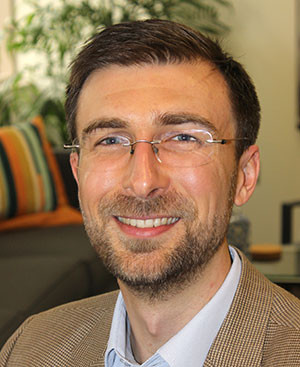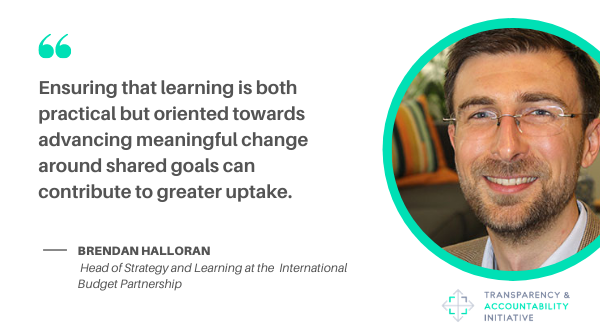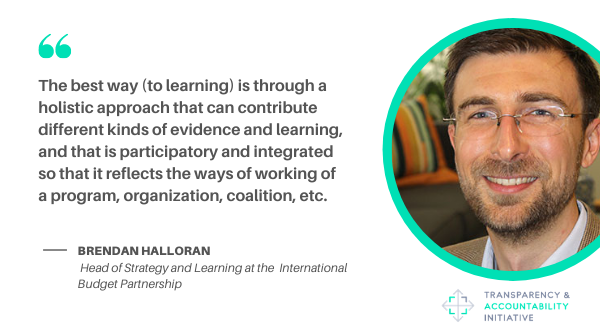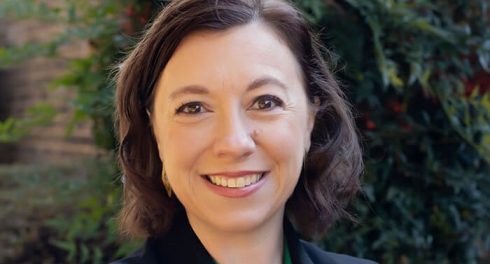
Brendan Halloran. Photo Source: International Budget Partnership
It’s great catching up with ex-TAIer, Brendan Halloran – governance learning expert. Brendan currently serves as the Head of Strategy and Learning (with a focus on fiscal governance) at the International Budget Partnership where he continues to work on the intersection of strategy and learning around governance issues. We spoke with Brendan on what learning looks like amid a pandemic, the obstacles of putting learning into action, and new adaptations to monitoring, evaluation, and learning.
When did it first “hit” you that you will be working more on transparency, civic participation, and accountability (TPA) issues?
I went to Guatemala as a Peace Corps volunteer in 2006 and worked in a local government office in a rural area. That experience first raised questions for me about what it takes for government to effectively, inclusively, and accountably engage people in addressing local development challenges. I ended up spending five years in Guatemala in total, also doing Ph.D. research and working for USAID, all trying to better understand and address the complex governance issues going on in that country at various levels. I certainly didn’t figure it all out, but I did start to get a sense of an important set of questions, and those related to transparency, participation and accountability issues, and the political economy considerations that underpin them. It turns out those were questions being asked around the world as well.
 You play an important role in helping the International Budget Partnership (IBP) support efforts to make budget processes more transparent, participatory, and accountable so that public resources are used to address poverty. What have been some of the major highlights for you from working in this area, and what other changes would you like to see more in this field?
You play an important role in helping the International Budget Partnership (IBP) support efforts to make budget processes more transparent, participatory, and accountable so that public resources are used to address poverty. What have been some of the major highlights for you from working in this area, and what other changes would you like to see more in this field?
I think we are in an interesting and challenging time in this field. We’ve come farther in our understanding of the complex political economy challenges inherent in moving towards more equitable and accountable fiscal governance. Conversations like the Fiscal Futures workshops IBP co-hosted with TAI and Tom Carothers a couple of years ago were opportunities to grapple with these issues. IBP has been in a privileged position to be able to begin to explore ways to convene and support the kinds of actors and coalitions that can navigate, and in some cases, shift the political economy toward meaningful reform around public resources. In our SPARK program, we started with questions like “accountability for whom?” and “what does it take to shift fiscal governance and service delivery systems to be more inclusive?” This led us to work with grassroots organizations representing marginalized groups – from community budget champions to national federations of women small farmers – along with our longtime CSO partners and other allies in media and government. We hope to achieve both tangible service delivery improvements and more systemic shifts towards more accountable and responsive fiscal governance.
I think the trend is towards finding ways to engage and support diverse civic and state actors to come together and work towards more meaningful reforms and systems change for inclusion and accountability. That means thinking in longer time frames through which incremental progress can add up to something more systemic and sustainable. This often runs counter to some of the ways of thinking and working that focus more narrowly on short-term projects or exclusive focus on advocacy for policy change. Organizations working in this field can continue to think hard about how meaningful change happens and adapt our approaches in ways that are consistent with those lessons.
Critical to learning is putting evidence into action. Why is this so hard and what do you find works?
We call this the ‘last mile’ of learning and agree that it is a challenge. Some of the obstacles are practical ones: evidence generation, synthesis, reflection – these all take time, and that doesn’t always line up with project cycles or other moments for decisions or action. Other challenges relate to the focus of learning. Often program managers, partners on the ground, and learning teams may be asking slightly different questions or seeking to inform action in different ways, more tactical and immediate or more strategic and long term, that is, single or double-loop learning – to use some MEL jargon. Providing relevant evidence and generating learning at those different levels and moments and for different stakeholders can be challenging. Then there are donor requirements, which may align well or demand a competing focus. Increasingly, we are exploring how to generate evidence and learning across coalitions. Ensuring that learning is both practical but oriented towards advancing meaningful change around shared goals can contribute to greater uptake.
While I won’t claim that IBP has always gotten this exactly right, for me, the best way is through a holistic approach that can contribute different kinds of evidence and learning, and that is participatory and integrated so that it reflects the ways of working of a program, organization, or coalition. This needs to be complemented by an enabling environment to translate evidence and learning into action i.e. shared ownership, leadership “walking the talk,” organizational culture that rewards curiosity, and perhaps most importantly, clear and robust decision-making processes that build on evidence and learning.
 A lot of things have changed from last year because of the pandemic. How have these changes impacted learning in the TPA field? Given the fact that MEL people often depend on being “in the room” to support reflection and learning, what adaptations have you had to make?
A lot of things have changed from last year because of the pandemic. How have these changes impacted learning in the TPA field? Given the fact that MEL people often depend on being “in the room” to support reflection and learning, what adaptations have you had to make?
At IBP, we had already been moving towards a more decentralized MEL, with a greater focus on country teams, partners, and on-the-ground action researchers doing much of the evidence gathering and reflection. Our global strategy and learning team has focused on setting up processes, helping shape questions, assisting in refining and deepening resulting insights, as well as supporting uptake into strategy and planning. This has also entailed supporting synthesis of lessons across partners, countries, and programs. What has been most interesting has been to take some of our commitment to participatory reflective spaces into virtual spaces. These are challenging because we often try to compress what would have been a 1-2 day learning workshop into a couple of 90 minutes sessions. That said, the use of breakout rooms for small group discussion, real-time shared notes, and other facilitation techniques have allowed us to try to create participatory and robust sense-making spaces. We put this into practice late last year through a virtual mid-strategy review that focused on building a strong base of learning and reflection among teams and partners and built up to the assessment of overall progress and direction. We are taking stock of that process and other learning efforts and will use these to shape our approaches, both virtual and (eventually) in person.
If you could have dinner with anyone from history, who would it be? And what would you talk about over dinner?
I’m a huge history geek, so my list is long, and choosing one is rather painful. I would go way back and learn from someone who understands the world very differently from myself. Having spent a lot of time in Guatemala, I am fascinated by the ancient Maya, and would love to speak with someone from a city like Tikal, which was abandoned (along with many other Maya cities at the time) at the height of its power. Why did they leave? Did they have any doubts or regrets? What did they want to differently when they started over?
Catch up with Brendan on Twitter at @Halloran_B and get more update on what International Budget Partnership is up to at @openbudgets


